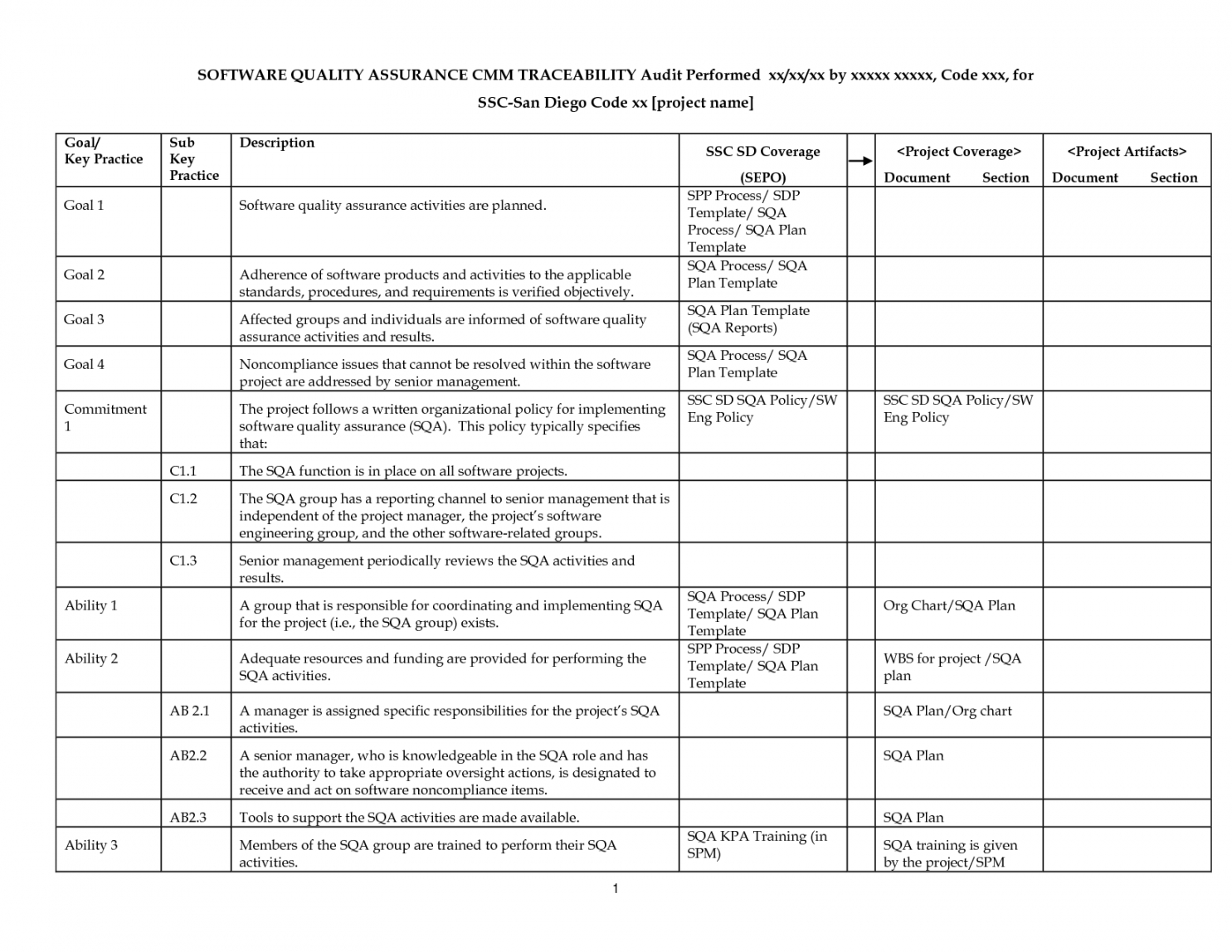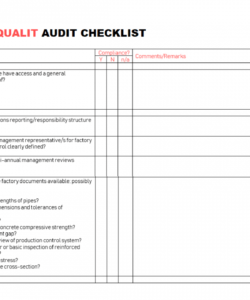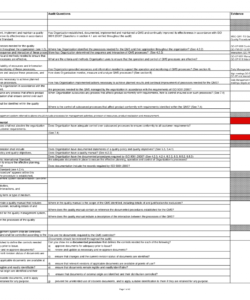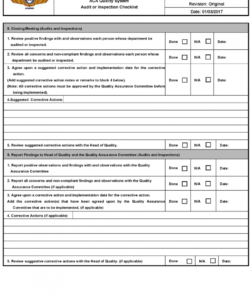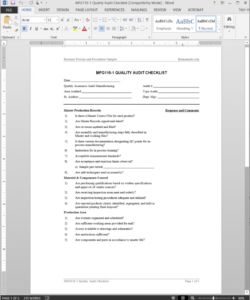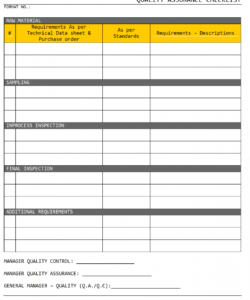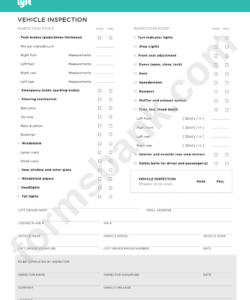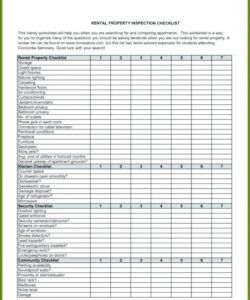Internal audit quality assurance checklist template, Historically, checklists were simple to-do lists which served as reminders; attend the sales conference, fax or email the contract to an individual client, or distribute a worker memo. Even today, most dictionaries define a record as a document that acts as a reminder for a series of tasks to be finished. However, checklists have now evolved to important business management tools that do much more. Along with listing action items, checklists are effective business processes that enable organizations to grow and progress methodically, and in a planned way. They’ve become important organizational tools for both business ventures.
Many times a checklist can prevent an unavoidable situation from turning into a crisis situation. By implementing a checklist you probably will have planned well enough you will have the ability to quickly put a strategy into action and avoid the crisis. To really be ready (there are many aspects to our lives that incorporate together, yet are distinctly different) there are several different types of checklists which are required so you are ready when any situation arises. Here’s a list of a Few of the checklists You’ll Need to begin your planning process:
A checklist is a list of items or tasks which you”check off” as you finish each item/task on the list. Checklists are everywhere and are an essential component of the majority of activities – both personal and business. In our own daily lives, we make checklists for coordinating (“To-Do Lists”), preparation (birthday party), prioritizing (bills to pay), shopping (grocery list), and so forth. Business is no different; checklists are crucial to an effective, efficient, and profitable operation.
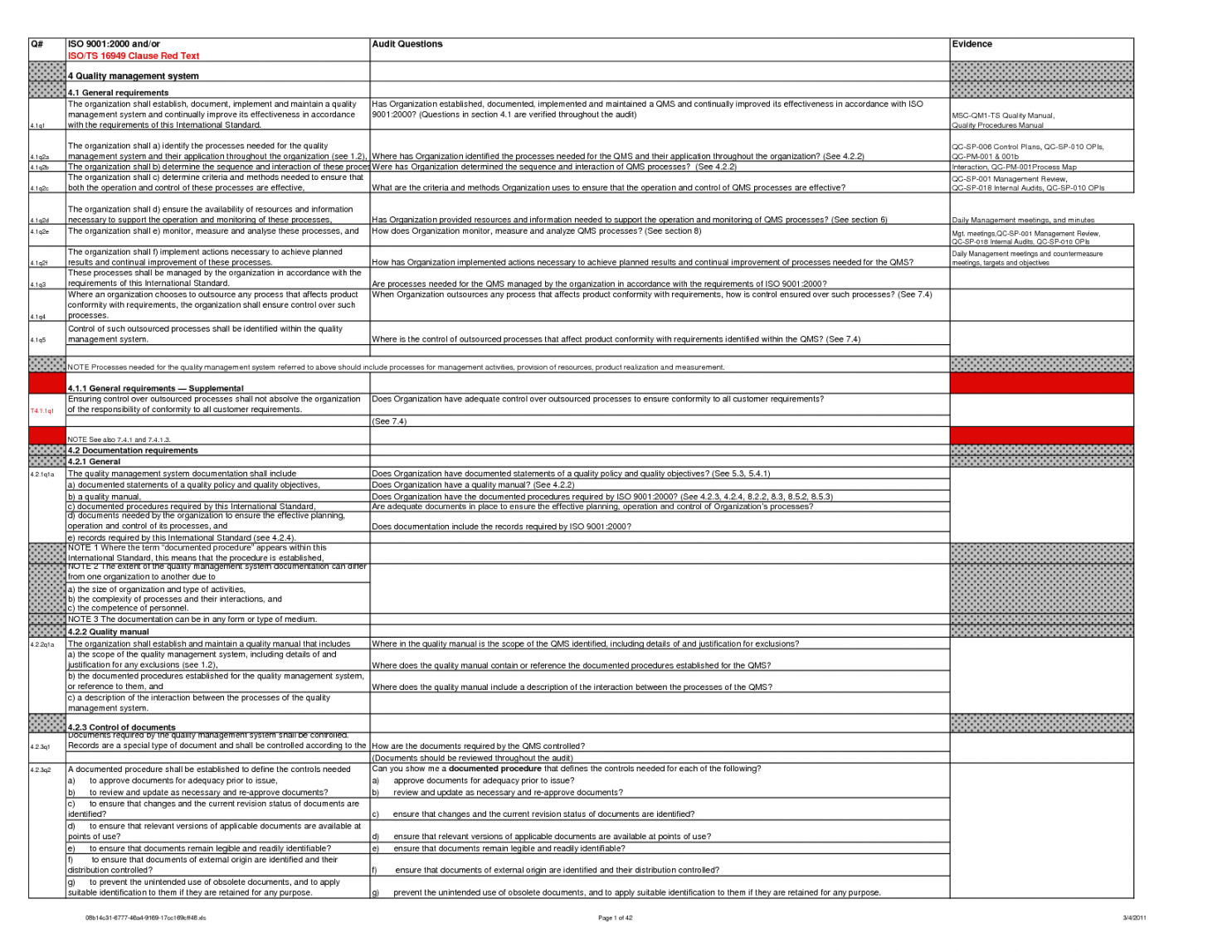
Checklists are used to plan, promote, operate, and manage your own business because checklists provide an effective means to organize, prioritize, direct, control and measure business activity. Simply put, without checklists there could be chaos. What would occur if every salesperson processed an order differently? Or there was no budget? Or you didn’t know what was in inventory? Or what items were on order? Or who was scheduled to work the day shift? This not only would be disorderly, but it is not really good business. Checklists are crucial to the effective operation of a small business.
Business checklists are used by the employees directly involved in managing and coordinating specific tasks. It’s always a good idea to make a single person responsible for monitoring progress and, if necessary, updating the checklist. Multiple modifications will only cause confusion and errors. Periodic reviews will allow you to readily measure improvement and better management application. If you have several places and the checklist comprises tasks or actions for long-distance workers, then you can easily make the checklist available via means such as webpages, business newsletters or the world wide web.
Checklists are a valuable and essential tool for any sized company. They supply a meaningful, realistic method to plan, arrange, operate, and manage a business and its own money, products, clients, workers and outcomes. The successful use of checklists is the key to a well-run, rewarding business and for eliminating the”oops” moments!

